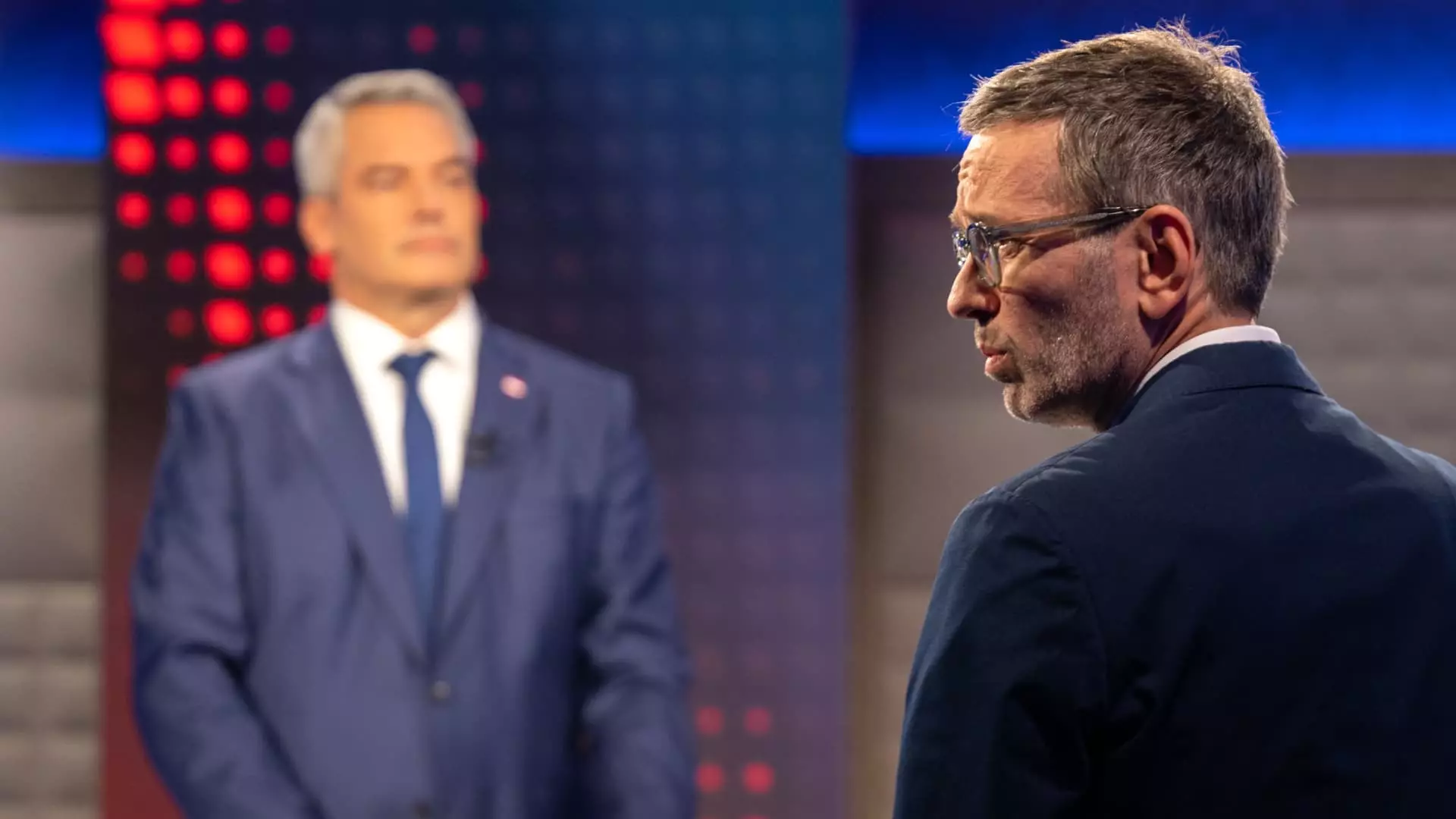The political climate in Austria is heating up as the nation prepares for a potentially game-changing parliamentary election. At the forefront of this election is Herbert Kickl, the leader of the far-right Freedom Party (FPO). As political tension mounts, questions arise about the implications of an FPO victory, the dynamics between Austria’s leading parties, and the potential shifts in policy direction. The popularity of extremist factions like the FPO underscores broader European trends in populism and nationalism, as economic frustrations and immigration policies become pivotal campaign issues.
Herbert Kickl has absorbed significant attention due to his sustained focus on immigration as a pivotal electoral issue. Polls have suggested that the FPO has maintained a lead throughout the year, capitalizing on public discontent surrounding soaring inflation and a struggling economy. Kickl’s messaging has appealed to a demographic disillusioned by traditional politics, characterized by his anti-establishment rhetoric. Efforts by the ruling Conservative Austrian People’s Party (OVP), led by Chancellor Karl Nehammer, to position themselves as the more stable alternative appear to be gaining traction. Recent polling indicates the race is now too close to call, reflecting a dramatic shift in the political narrative and voter sentiments leading up to the election.
The battle between these parties is not just a contest of policies but also one of personality and perception. Nehammer’s efforts to frame himself as a steady leader restores faith amid turbulent times juxtaposes Kickl’s judgement as a polarizing figure. This apparent dichotomy could influence undecided voters looking for reassurance in a leader during uncertain economic times.
Kickl’s proclamations of being “number 1” in the elections resonate deeply with those who feel overshadowed by the political establishment. His rallying cry, delivered against the historic backdrop of St. Stephen’s Cathedral, illustrates a long-standing tradition in European politics where populist leaders often rally public support through emotionally charged statements. It highlights an effective strategy: speaking to the frustrations of the common citizen while challenging the “system.”
The concept of “Fortress Austria,” which promotes the idea of stringent border control and limiting asylum grants, reflects Kickl’s calculated stance on immigration. Such pronouncements resonate with a significant segment of the electorate concerned about national identity and security amidst rising migration flows into Europe. However, this also raises critical ethical questions about human rights and Austria’s obligations under international law, potentially positioning the FPO at odds with broader European ideals.
Regardless of who emerges victorious, the reality is that no party is poised to achieve an absolute majority, making coalition-building a necessity. This dynamic places significant pressure on both the FPO and the OVP to negotiate terms for governance while staying true to their electoral pledges. The OVP’s hesitant approach to coalition discussions indicates a strategic maneuver to distance itself from the FPO’s more extreme policies while not undermining potential alliances. The possibility of a three-way coalition involving Social Democrats could complicate negotiations, highlighting the fragile nature of party politics in the current climate.
Nehammer’s attempt to advocate for stability instead of chaos could attract moderates who are apprehensive about a possible FPO-led government while simultaneously appealing to traditional center-right supporters. The contradictions inherent to the coalition-building process underscore the complexities within Austrian politics, as parties weigh ideological consistency against pragmatic governance.
As Austria readies itself for an impending election, the potential outcomes carry broad implications not only for Austrian society but also for the European political landscape. The FPO’s rise underscores a growing acceptance of nationalist rhetoric amid economic uncertainty and immigration challenges. Ultimately, the forthcoming election signifies more than just a struggle for power; it highlights the enduring friction between populism and traditional political narratives, setting the stage for a future that may redefine Austria’s domestic and foreign policies substantially. The stakes could not be higher as citizens are called to make decisions that will shape both their political reality and national identity in the years to come.



Leave a Reply